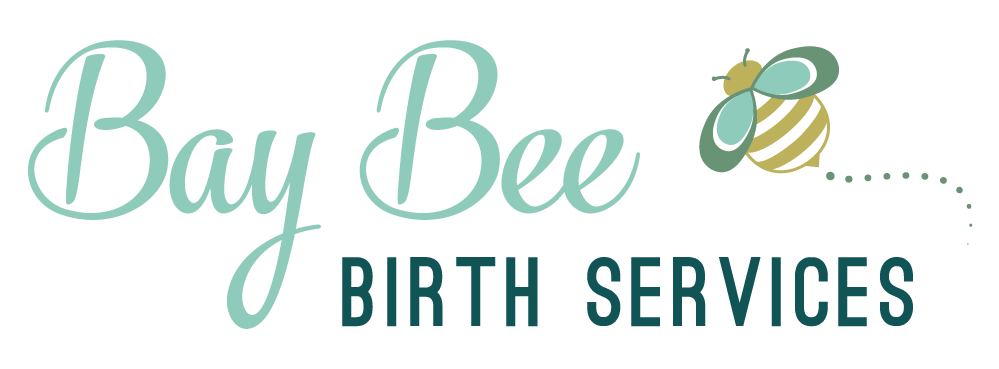How Birth Doulas Help Moms Push Through
Birth is the unknown. That can seem scary to some people, but it’s true. Every birth and every momma is different. Of course, we all know what the end result will be…a baby! But how mommas all get to that end result is a different road. The unknown can also be exciting. The unknown is what many doulas love about their job! Putting together a wonderful birth support team is key in helping a mother to navigate anything and everything that happens during childbirth. Consider adding a doula to your birth team, because she (or he) has been there and done that. A lot. She’s excited with you or helps keep you (and your partner) calm, collected and informed if things get a little ‘hinky’. She often instinctively knows what you need during this emotion-filled time in your life. Her services may even be financially covered by your Flexible Health Spending Account! Score!
 Birth doulas, also known as labor doulas, work with you prior to having the baby so she can learn how to best support you and your partner during the labor. Doulas work with all types of families desiring all types of births – from planned cesareans in the hospital to non-medicated homebirths, women who want an epidural or other pain medications to women who definitely do not. Depending on what your birth wishes are, your doula has lots of local resources for you to help you along the way during your pregnancy and even after the baby is born. We’ll hook you up with some great pre-natal massage therapists, chiropractors, yoga instructors, mommy groups, placenta encapsulators, postpartum doulas and more!
Birth doulas, also known as labor doulas, work with you prior to having the baby so she can learn how to best support you and your partner during the labor. Doulas work with all types of families desiring all types of births – from planned cesareans in the hospital to non-medicated homebirths, women who want an epidural or other pain medications to women who definitely do not. Depending on what your birth wishes are, your doula has lots of local resources for you to help you along the way during your pregnancy and even after the baby is born. We’ll hook you up with some great pre-natal massage therapists, chiropractors, yoga instructors, mommy groups, placenta encapsulators, postpartum doulas and more!
One of a birth doula’s main responsibilities is to offer continuous support! That’s right – no shift change, no other patients to worry about, and no charting to handle. The focus is helping to make you, the mother, as comfortable as possible and to assist you and your partner to learn how to advocate for yourselves. In a 2013 study from Evidence Based Birth, with more than 15K participants, the best birth results occurred when women had continuous labor support from a doula. In other words, just having a doula present in the room contributed to an overall 34% decrease in the risk of being dissatisfied with the birth experience.
 I’ve heard countless moms tell me they felt pressured or overwhelmed in the moment when it came to making a decision about the course of their care during labor. Doulas work to change that dynamic. They work to eliminate the rush, the fear, the pressure and oppositely create serenity. Serenity might sound like an oxy-moron when in labor, but doulas help you accept the process and truly know what’s happening so you feel more at ease. We. Get. You. Doulas do this by offering unbiased evidence-based information, various comfort and support measures, by reassuring you of the birth process, and by striving to facilitate clear communication between you and your care providers. It’s important to mention that the doula works alongside the healthcare team. A doula should not advise a mother to go against what a provider has said or offer her own opinion about a procedure. Instead, she will help you clarify all available options, risks and benefits and typically encourage the providers to give you a moment to process. Bottom line: You and your partner feel comfortable with the actions and procedures that are happening given your unique birth circumstances.
I’ve heard countless moms tell me they felt pressured or overwhelmed in the moment when it came to making a decision about the course of their care during labor. Doulas work to change that dynamic. They work to eliminate the rush, the fear, the pressure and oppositely create serenity. Serenity might sound like an oxy-moron when in labor, but doulas help you accept the process and truly know what’s happening so you feel more at ease. We. Get. You. Doulas do this by offering unbiased evidence-based information, various comfort and support measures, by reassuring you of the birth process, and by striving to facilitate clear communication between you and your care providers. It’s important to mention that the doula works alongside the healthcare team. A doula should not advise a mother to go against what a provider has said or offer her own opinion about a procedure. Instead, she will help you clarify all available options, risks and benefits and typically encourage the providers to give you a moment to process. Bottom line: You and your partner feel comfortable with the actions and procedures that are happening given your unique birth circumstances.
Having the presence of a doula shows a 28% decrease in the risk of C-section. Whether the baby is in an incorrect position, a mother is tired or has an emotional block…or a plethora of other reasons a cesarean is suggested, the doula not only helps you to explore all of your options, but is often skilled in many relaxation, breathing, movement and positioning techniques that can encourage the baby to settle into a more favorable birthing position. A doula helps you work through your emotions and aims to reinvigorate you to literally push through. She’s your cheerleader. She provides reassurance and praise through it all.
A doula does not, however, take the place of your partner. As previously mentioned, a doula is only a part of your birth support team. Each person plays an important role in the success of your birth. As with healthcare providers, doulas work alongside your partner, too. Specific maternal support is discussed prenatally so everyone’s roles are well-defined ahead of time. Doulas will offer your partner a break, look out for their well-being and give them tasks or strategies to help comfort you, if desired. To learn more about how partners and doulas work together, check out this article.
For more information about doulas or the next Doula Information Session date, visit www.baybeebirthservices.com or contact Jenny Bare, MPH, CLD, CHES at baybeebirthservices@gmail.com.


 Do Doulas Need to be Certified?
Do Doulas Need to be Certified?